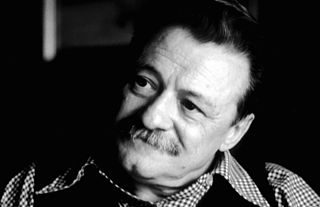A Quote by Neil Postman
The reader must come armed , in a serious state of intellectual readiness. This is not easy because he comes to the text alone. In reading, one's responses are isolated, one'sintellect thrown back on its own resourses. To be confronted by the cold abstractions of printed sentences is to look upon language bare, without the assistance of either beauty or community. Thus, reading is by its nature a serious business. It is also, of course, an essentially rational activity.
Quote Topics
Activity
Alone
Also
Armed
Assistance
Back
Bare
Beauty
Because
Business
Cold
Come
Community
Confronted
Course
Easy
Either
Essentially
Her Beauty
Intellectual
Isolated
Language
Look
Look Up
Must
Nature
Own
Printed
Rational
Reader
Readiness
Reading
Responses
Sentences
Serious
Serious Business
State
Text
Thrown
Thus
Without
Related Quotes
Serious reading is hardly a social activity and every halfway serious reader is perpetually subject to a form of coitus interruptus. Family members or friends who lack the desire, the courage, or the opportunity to burst in on you when there's some indication that you could be sexually entwined will seldom hesitate to interject themselves between you and a page, even though the act of reading is often as intimate and intense as a full-fledged carnal embrace.
We must be forewarned that only rarely does a text easily lend itself to the reader's curiosity... the reading of a text is a transaction between the reader and the text, which mediates the encounter between the reader and writer. It is a composition between the reader and the writer in which the reader "rewrites" the text making a determined effort not to betray the author's spirit.
Lots of kids, including my son, have trouble making the leap from reading words or a few sentences in picture books to chapter books. Chapters are often long... 10 pages can seem like a lifetime to a young reader. Then reading becomes laborious and serious. That's why some of the chapters in my books are very short.
Reading activates and exercises the mind. Reading forces the mind to discriminate. From the beginning, readers have to recognize letters printed on the page, make them into words, the words into sentences, and the sentences into concepts. Reading pushes us to use our imagination and makes us more creatively inclined.
So we start with an oversignifying reader. Those texts that appear to reward this reader for this additional investment - text that we find exceptionally suggestive, apposite, or musical - are usually adjudged to be 'poetic'. ... The work of the poet is to contribute a text that will firstly invite such a reading; and secondly reward such a reading.
Non-custodial sentences are certainly something to look at, more support in the community rather than within prisons is something we have to look at. There will of course still be women who need to be in prison, serious offenders, but I think there is scope to look at that number and I think that number could come down.
Like when you pick up a book and you don't realize what type of text it is - it could be an essay, a novel, a biography - and at one point you realize you don't know where, as a reader, you want to be. Where are you going with this text? What is the goal? How are you supposed to interpret what you're reading? And people's responses vary - some dislike it, and are put off by the confusion, the lack of comprehension.
I've always believed that everything that is said from authority is either the authority of one's own heart, one's own brain, one's own reading, one's own trust, but not the authority of someone who claims it because they're speaking for God and they know the truth because it's written in a book. That, essentially, is where I come from. In a sense, tolerance is my religion. Reason is my religion.
All spiritual growth comes from reading and reflection. By reading we learn what we did not know; by reflection we retain what we have learned. The conscientious reader will be more concerned to carry out what he has read than merely to acquire knowledge of it. In reading we aim at knowing, but we must put into practice what we have learned in our course of study.
The Library didn't only contain magical books, the ones which are chained to their shelves and are very dangerous. It also contained perfectly ordinary books, printed on commonplace paper in mundane ink. It would be a mistake to think that they weren't also dangerous, just because reading them didn't make fireworks go off in the sky. Reading them sometimes did the more dangeous trick of making fireworks go off in the privacy of the reader's brain.


































